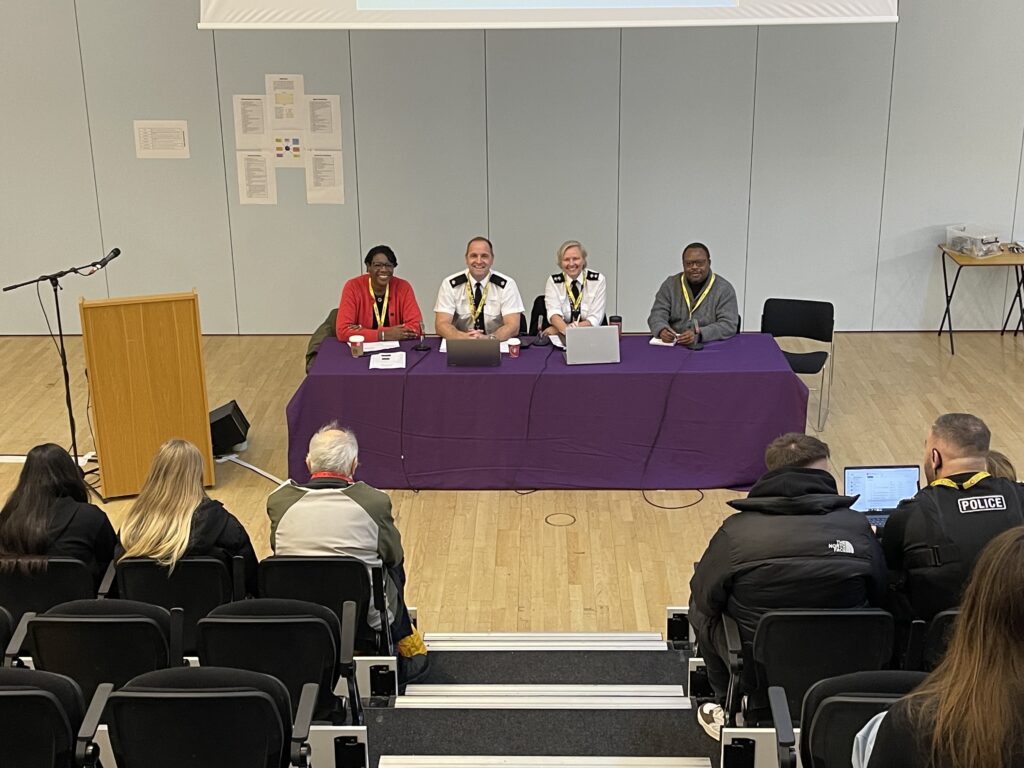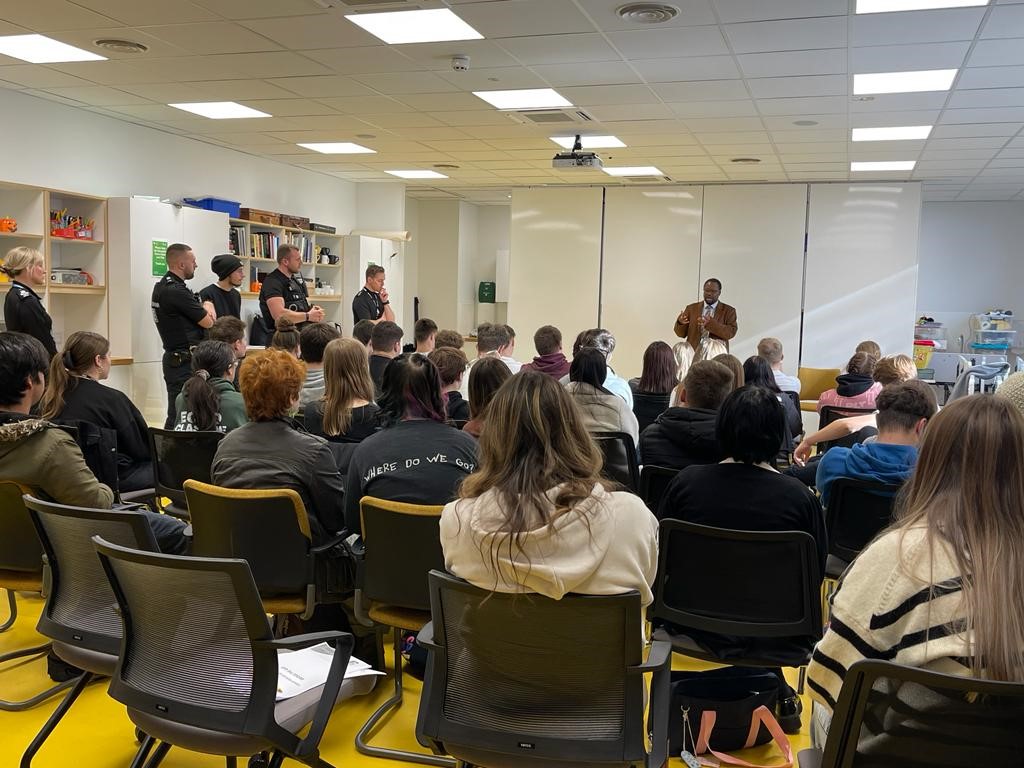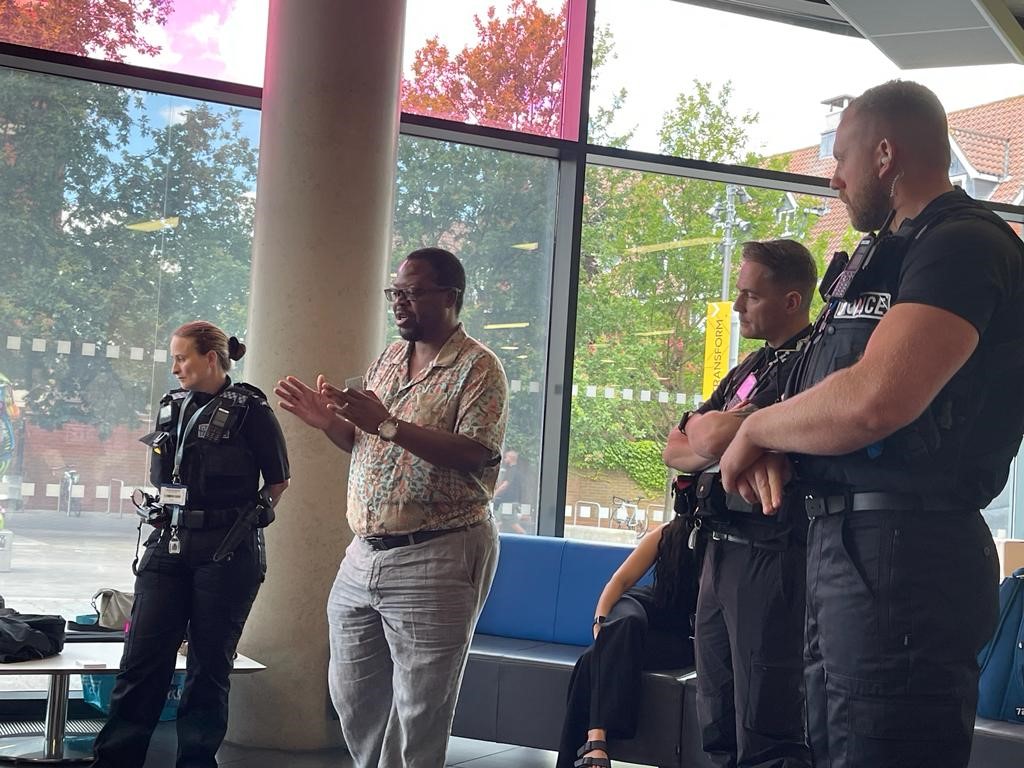
Anyone with an interest in the police stop and search powers is welcome to attend and contribute to our independent SPPPS meetings.
The meetings offer an independent view of the tool’s used across Suffolk and aim to ensure that stop and search is used appropriately. More details of this can be found on the Stop and Search page here.
SPPPS
Suffolk Police Powers Public Scrutiny (SPPPS) is an independent, community-led group dedicated to monitoring and reviewing the police’s use of force and stop-and-search powers. Oversight of police powers is crucial for upholding a fair and just society, ensuring that the police operate within legal boundaries and maintains the trust and consent of the public it serves.
The groups aim:
Scrutinise and hold Suffolk Police to account regarding their use of powers to include:
- Scrutinise the police Use of Force, Taser and Stop & Searches
- Tackle police disproportionality on minoritised communities
- Improve trust and confidence in the way the police use their powers
- Highlight lived experiences, stressing the importance of fair use of police powers and its impact on communities
- Provide an open space for communities to share experiences and for the police to explain their actions
- Improve community cohesion in Suffolk
- Stop and Searches, with a focus on disproportionality against minority ethnic groups.
To find out further details regarding Stop and Search please see our page dedicated to covering Stop and Search
SPPPS unites members of the public and the police to address the disproportionality in stop and search practices affecting individuals from minoritised backgrounds. Please review the most recent Suffolk’s Proportionality of Stop and Search Use – BME report.
Jonathan Chapman Superintendent – Suffolk Constabulary
Police powers cover a wide range of policing activity, and the scrutiny of these powers has extended beyond just Stop and Search to include how officers use force, as well as Taser. Stop and Search remains an effective method of detecting and preventing crime and it is imperative that officers are confident in its use. When we consider use of force it is critical as with all police powers that they are used with real legitimacy and proportionality. Scrutiny has never been more important, officers need to know that they have the support of their senior leaders and the public to use their powers in the course of their duties and to do so with real transparency, honesty and openness.
Used appropriately the use of police powers helps keep the public safe and with identified methods of scrutiny helps build on public trust and confidence. It is so important that the police continually learn and are afforded forums to gather feedback and listen to the communities of Suffolk through applied scrutiny. Working closely with our partners in ISCRE allows Suffolk police to do this effectively. It also provides the opportunity to celebrate the good work that is delivered by officers on a daily basis and to give our communities the reassurance that they have an effective Police service that will protect them from harm.
Suffolk police remain committed to the guidelines written as part of “The Best Use of Stop and Search Scheme” (BUSS) which was originally announced the Home Secretary in 2014. Whilst the scheme has developed since that time, we continue to follow the guidance and best practice which seeks to achieve greater transparency, community involvement in the use of stop and search powers, and to support a more intelligence-led approach that leads to positive outcomes.
Most of this content sits within the Stop & Search “Authorised Professional Practice” (APP), which can be found on the College of Policing website. The Joint Suffolk & Norfolk Stop & Search Policy is reviewed to reflect any changes within APP.
Much of the same can be said in relation to Use of Force (UOF) including Taser. These powers are now included as part of the same scrutiny process and with it comes a new challenge for the police and partners as we jointly navigate the world of scrutinising the application of subjectivity in relation to officer’s proportionate use of force.
Use of Force as with any professionalised practice within policing is supported by guidance from the College of Policing and APP. Suffolk police follow this guidance along with relevant licensing requirements to deliver training and compliance. The existing process of scrutiny applied to Stop and Search has provided the basis for a productive and positive start to this new development. With the same energy and focus alongside our partners within ISCRE and the public, Suffolk police will be able to continually develop and support our communities in the best way possible
To find out more about stop and search please visit the Suffolk Police and Crime Commissioner page
SPPPS Booklet
Know your rights!
Photos from ISCRE & Suffolk Police informing children and younger people of their rights if stopped and searched.
Terms of Reference for Suffolk Police Powers Public Scrutiny Group
Please click here to view the Terms of Reference for Suffolk Police Powers Public Scrutiny Group

Please click here to attend the next SPPPS meetings.
Future SPPPS Meeting Dates for 2025:
Meetings will vary form being held online and in person. If you would like to find out more about a specific date please contact ISCRE at Office@iscre.org.uk
January 29th
March 26th
May 28th
July 30th
September 24th
November 26th
SPPPS Meeting Minutes:
SPPPS Meeting Minutes 26.03.2025
SPPPS Meeting Minutes 29.01.2025
SPPPS Meeting Minutes 27.11.2024
SPPPS Meeting Minutes 25.09.2024
SPPPS Meeting Minutes 31.07.2024
SPPPS Meeting Minutes 05.06.2024
SSRG Meeting Minutes 29.03.2024
SSRG Meeting Minutes 27.01.2024
SSRG Meeting Minutes 29.11.2023
SSRG Meeting Minutes 27.09.2023
SSRG Meeting Minutes 26.07.2023
SSRG Meeting Minutes 31.05.2023
SSRG Meeting Minutes 29.03.2023
SSRG Meeting Minutes 28.02.2023
SSRG Meeting Minutes 30.03.2022
SSRG Meeting Minutes 29.09.2021
SSRG Meeting Minutes 28.07.2021
SSRG Meeting Minutes 26.05.2021
SSRG Meeting Minutes 31.03.2021
SSRG Meeting Minutes 27.01.2021
SSRG Meeting Minutes 28.10.2020

